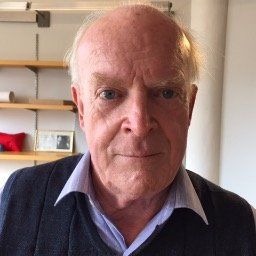Elie Wiesel was a revered global figure: on the Holocaust, on human rights, on fighting for peace and alleviating suffering everywhere.
Yet somehow, The Independent‘s columnist, Rupert Cornwell, finds a way to warp Wiesel’s legacy through a barely disguised antagonism towards Israel drawing upon hate, lies and conspiracy theories.

Cornwell begins misleadingly: by praising Wiesel’s work in speaking about the Holocaust, then quickly adding:
In his later years, he was not so much witness of the unspeakable as a metaphor for Israel. If you disagreed with Israel’s policies towards the Palestinians, if you believed that a people who had suffered so much should understand the miseries they were inflicting on another people, then you would not appreciate Wiesel and his blind spot towards the Palestinians.
There are two problems with the above statement: 1. it is a bald faced lie, completely at odds with Elie Wiesel’s actual statements; and 2. it is clearly anti-Semitic.
Join the fight for Israel’s fair coverage in the news
In truth, Elie Wiesel was far from indifferent to the plight of Palestinians, as he said in his Nobel Prize acceptance speech:
And then, too, there are the Palestinians to whose plight I am sensitive but whose methods I deplore. Violence and terrorism are not the answer. Something must be done about their suffering, and soon. I trust Israel, for I have faith in the Jewish people. Let Israel be given a chance, let hatred and danger be removed from her horizons, and there will be peace in and around the Holy Land.
Unlike Wiesel, Cornwell did not mention the deplorable methods of the Palestinians, nor the enormous efforts, risks and sacrifices that the Israeli and Jewish people continue to make to try and bring dignity and peace in the face of tremendous odds, and tremendous danger. Perhaps it is due to his insight and sensitivity that Wiesel is an internationally recognized peacemaker while the Independent is . . . well, not.
 Cornwell speaks of Wiesel’s work in raising awareness of the Holocaust but claims he has a “blind spot” toward Palestinians, as if the situation of Palestinians was even remotely similar to that of Jews during the Holocaust. It is not.
Cornwell speaks of Wiesel’s work in raising awareness of the Holocaust but claims he has a “blind spot” toward Palestinians, as if the situation of Palestinians was even remotely similar to that of Jews during the Holocaust. It is not.
Not even close.
In fact, the differences are so vast that attempts to create equivalence between Israeli policy and the policies of Nazi Germany are included in the very definition of anti-Semitism, as adopted by many nations around the world, including the United Kingdom (the country where the Independent is published).
Cornwell makes passing mention of “Bosnia” but fails to mention the role that Wiesel played in saving untold numbers of Muslim lives by helping to bring attention to the Bosnian Genocide, and eventually bringing about its end through the Dayton Accords. It is worth noting that neither Palestinians, nor most of the nations of the Muslim world, took any significant part in saving the Muslims of Bosnia. Certainly none did close to as much as Elie Wiesel, with the possible exception of NATO.
Cornwell falsely states that Wiesel was “never as revered in Israel itself [as he was internationally].” Again, The Independent simply dispenses with truth. The article vaguely alludes to the “feeling of the Israeli left” as supposed evidence that Israel is not fond of Wiesel, yet covered up that Wiesel was a frequent visitor to Israel, fluent in Hebrew, championed by many Israeli leaders as a symbol of the Jewish journey, and that Israel, as a country, is now mourning Wiesel as “one of its own.”
Just like Eli Wiesel himself, it took Israelis a long time to embrace the importance of talking openly about the Holocaust, but once they did, Israelis accepted Wiesel as one of their own, and mourned his passing as an Israeli hero. Yossi Klein Halevi explained to the Los Angeles Times why it took time for Israel to embrace Wiesel:
“In the early years of the state, Holocaust survivors were resented by native-born Israelis for their supposed passivity during the war. Elie Wiesel’s mission to centralize Holocaust memory in Jewish identity didn’t find a place in the Israeli ethos,” Halevi said. “Over the years, Israelis began to understand the Holocaust in a much more nuanced way, and not just as a story of Jewish passivity, and began to see survivors generally and Wiesel in particular as heroes of the spirit.”

As if all that were not enough, Cornwell takes a turn toward conspiracy theories, saying that that Israel has some mysterious “grip” on American politics, due to people like Elie Wiesel.
If you disliked the grip that Israel had on the politics of America, its great protector in the world, and America’s reflexive support for the Jewish state, then Wiesel would make you uneasy. If there was a prime mover for the creation of a Holocaust Museum in Washington DC, rather than in Europe where the crime was committed, it was Elie Wiesel.
The fact that the United States Holocaust Museum is located in the United States is testament to the universal lessons that the Holocaust teaches the world and not just Europeans. Why then does Cornwell consider Wiesel’s support for a museum in Washington D.C. to be part of “the grip that Israel had on the politics of America?”
Such a charge is a staple of Israel haters and anti-Semites. Again, Cornwell covers up the truth: that America’s support for Israel is based on shared values, as well as American self-interest.
The Independent shares no great insights here, but has merely given undeserved publicity to an idea held by a small number of hateful people who wish to take Elie Wiesel’s legacy for peace and understanding and misuse it as a tool for attacking the world’s only Jewish state.
As the Jerusalem Post and Times of Israel both noted, this sort of misguided hate for Elie Wiesel and for Israel comes “in stark contrast to the majority of outpourings from world leaders, public figures, and countless people touched by Wiesel’s works.”
Please share your considered comments with The Independent by clicking HERE to fill out its online complaint form.
Featured image: Miriam Alster/FLASH90 with modifications by HonestReporting;


